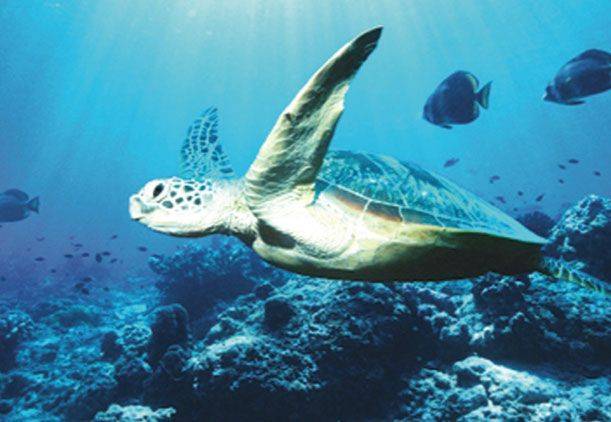By: Kara Lankford
I’m sure many of us have seen the devastating effects marine debris can have on our waterways.
For those of us living in coastal Alabama, the Dog River watershed is a prime example. After one of Mobile’s typical heavy summer rains, the scenic river is turned into a trash pile of floating debris that eventually makes its way to Mobile Bay and the Gulf of Mexico.
Not only is this debris unsightly, it can harm wildlife, and toxic chemicals can be transferred up the food chain as animals ingest the debris or absorb its toxins. Many may not realize that trash is one of the biggest threats to our ocean.
When I see the trash problem in Dog River and read stories about the massive garbage patches in the open ocean, it leaves me feeling overwhelmed and wondering how we find a solution to this huge issue. One thing is certain: it is not an easy fix. But there is hope!
Each and every one of us needs to make this a personal issue and do what they can to reduce trash in our rivers, bays and oceans. Maybe that means cutting out plastic bottles from your daily routine or reducing the amount of trash in your house by recycling. If we band together and make a commitment, we can make a difference.
A great way to get started is by participating in a cleanup at a beach or waterway near you. On September 21, you can participate in the 28th annual International Coastal Cleanup, a global effort to clean up trash from our waterways.
During the 2012 Cleanup, Ocean Conservancy mobilized more than 500,000 volunteers around the world who picked up more than 10 million pounds of trash on nearly 18,000 miles of coastlines. Those numbers are impressive and continue to grow each year.
The Cleanup is an essential step in picking up trash after it’s already ended up in the wrong place, but Ocean Conservancy also wants to target trash before it’s thrown away. Rippl, Ocean Conservancy’s mobile app, aims to address trash at the starting point or even before it’s created. Our Trash Free Seas Alliance touches on the point after trash is created and used, but before it’s thrown away. The hope is that innovation will drive alternatives.
Whether it is by changing your habits to create less trash or pushing industries and governments to find alternative uses, we can work together to find a solution.
While solutions are built on the individual actions of people, organizations and companies, it will take a collective movement to make the biggest difference. We need more volunteers than ever to join our movement.
Here are a few things you can do to help us achieve trash free seas:
o Commit to clean up. Trash in our streets, cities and neighborhoods inevitably ends up in our waterways, beginning a long, slow march toward the ocean. The next time you see trash blowing by or lying in a gutter, pick it up today and keep it off our beaches for next year. If you’re a boater, make sure you bring your trash with you back to shore and recycle when possible. Most boat ramps in Alabama now have monofilament line recycling stations.
o Pledge to join a cleanup. For Alabama residents visit www.alcoastalcleanup.com to find a cleanup zone near you. Can’t find a site near you? Gather friends and neighbors, and organize your own cleanup. Trash is everywhere, and the ocean is in the end of the line.
o Up your trash awareness. Know where it goes. Follow your items from consumption to landfill to find out what ends up where. Reduce your overall consumption of one-time use products to lower your contribution to the ocean trash problem.
o Download Ocean Conservancy’s app, Rippl, to join the movement all year long.
o Support Trash Free Seas. Every day, Ocean Conservancy is on the front lines fighting for a healthy ocean by cleaning up our beaches and preventing trash from getting there in the first place. Donate today to support our critical ocean work all year long.
o Ensure lawmakers support legislation that will provide the resources needed to deal with the ocean trash issue.
Keeping our waterways free from trash is one of the easiest ways we can make the ocean more resilient. From product design to proper trash disposal, we all have a role to play in keeping our ocean clean and free of debris. I hope to see you at one of the many cleanup zones in Alabama for the International Coastal Cleanup on September 21. I’ll be the zone captain for the Mobile Bay causeway
area. Come join the Trash Free Seas movement!
Kara Lankford is Ocean Conservancy’s Constituent Outreach Specialist. She’s a lifelong resident of the Alabama Gulf Coast. Ocean Conservancy educates and empowers citizens to take action on behalf of the ocean. From the Arctic to the Gulf of Mexico to the halls of Congress, Ocean Conservancy brings people together to find solutions for our water planet. Informed by science, our work guides policy and engages people in protecting the ocean and its wildlife for future generations.

